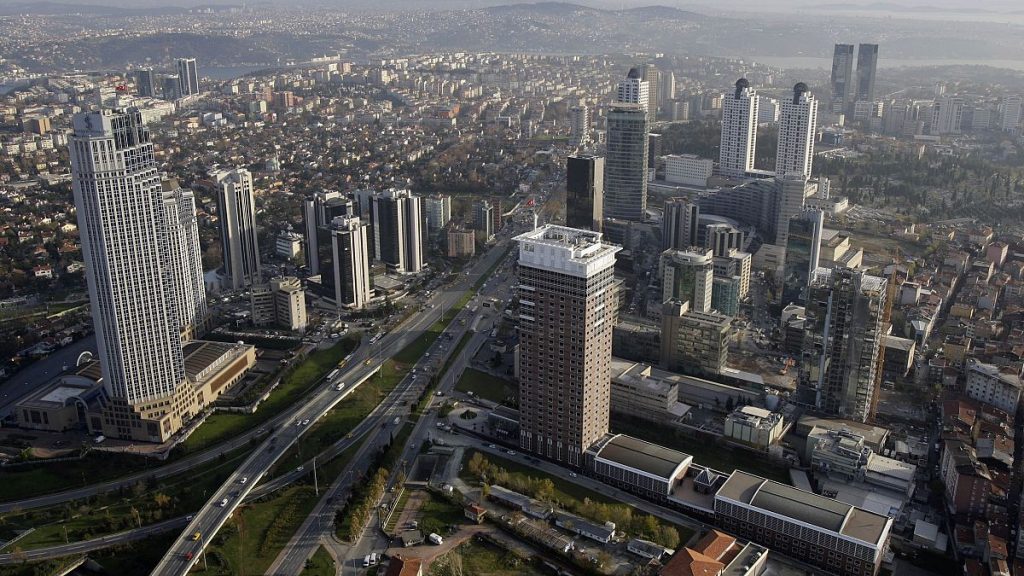Turkey’s economy has entered a phase of recession, as indicated by a quarterly contraction of 0.2% from July to September, mirroring the decline seen in the preceding quarter. This downturn represents a significant economic challenge, as it comes despite a reported year-on-year growth of 2.1% in the same period. Following a previous quarterly growth rate of 2.4% from April to June, these figures provide a clearer picture of the pressures on Turkey’s economic landscape. Contributing factors include a contraction in household consumption by 0.3% quarter-on-quarter and a decline of 0.4% in government consumption, although year-on-year household spending increased by 3.1%. The Central Bank of Turkey has taken note of these trends, with indications that domestic demand is slowing, thereby affirming concerns about the broader economic situation.
Analysts, including Nicholas Farr from Capital Economics, are suggesting that the central bank may consider lowering interest rates, potentially as early as the upcoming December meeting. However, Farr cautions that this might be premature, given the current economic indicators. High borrowing costs have noticeably quelled investment and production, further compounding the challenges facing consumers and businesses alike. The central bank has maintained a high key interest rate of 50% for the past eight months, which is a deliberate measure aimed at controlling rampant inflation, currently reported at a staggering 48.6% year-on-year in October. This situation raises complex questions about the balance between stimulating economic activity and managing inflation.
In light of the current economic climate, the weakening domestic demand and inflationary pressures are critical considerations for policymakers. The stagnant consumption trends reflect significant unease among households and investors regarding future spending. A decrease in government consumption also hints at a tighter fiscal policy approach, which could further exacerbate economic stagnation. The central bank’s recent indications underscore its acknowledgment of these trends, suggesting a careful reassessment of monetary policy might be on the horizon. While further cuts to interest rates could stimulate growth, they may also risk fueling inflation if not timed precisely.
Interestingly, despite the economic shrinkage, Turkey saw a notable decline in imports of goods and services, which fell by 9.6% year-on-year in the third quarter. This reduction in imports has allowed the country to experience some improvement in its trade deficit, hinting at an adjustment to the economic pressures by prioritizing local consumption and potentially fostering domestic production capabilities. While import trends may illustrate a responsive economic structure, they also bring to light the overarching struggle of Turkey’s economy to achieve sustainable growth amidst considerable inflation and uncertainty.
The central bank’s decision-making will need to be increasingly adept at navigating these complexities, as any miscalculation could compound economic volatility. Analysts recommend a cautious approach towards interest rate cuts, advocating for a more thorough analysis of the economic environment. The interplay between consumer confidence, government spending, and external trade considerations will require a nuanced strategy to not only address immediate recessionary symptoms but also lay the groundwork for longer-term economic recovery. The upcoming months will be telling for both economic stakeholders and policymakers in Turkey as they grapple with these emerging challenges.
As the global economic landscape continues to evolve, Turkey must remain vigilant about its domestic economic policies and their repercussions. The current trends indicate a need for delicate balancing acts in monetary policy, government spending, and support for consumer recovery. Given the current context, early interest rate cuts could serve as either a lifeline to invigorated economic activity or as a flashpoint for renewed inflationary pressures. Careful monitoring and adaptive strategies will be essential for recovery efforts as Turkey seeks to stabilize its economy while fostering an environment conducive to growth and resilience in the face of potential external shocks.














